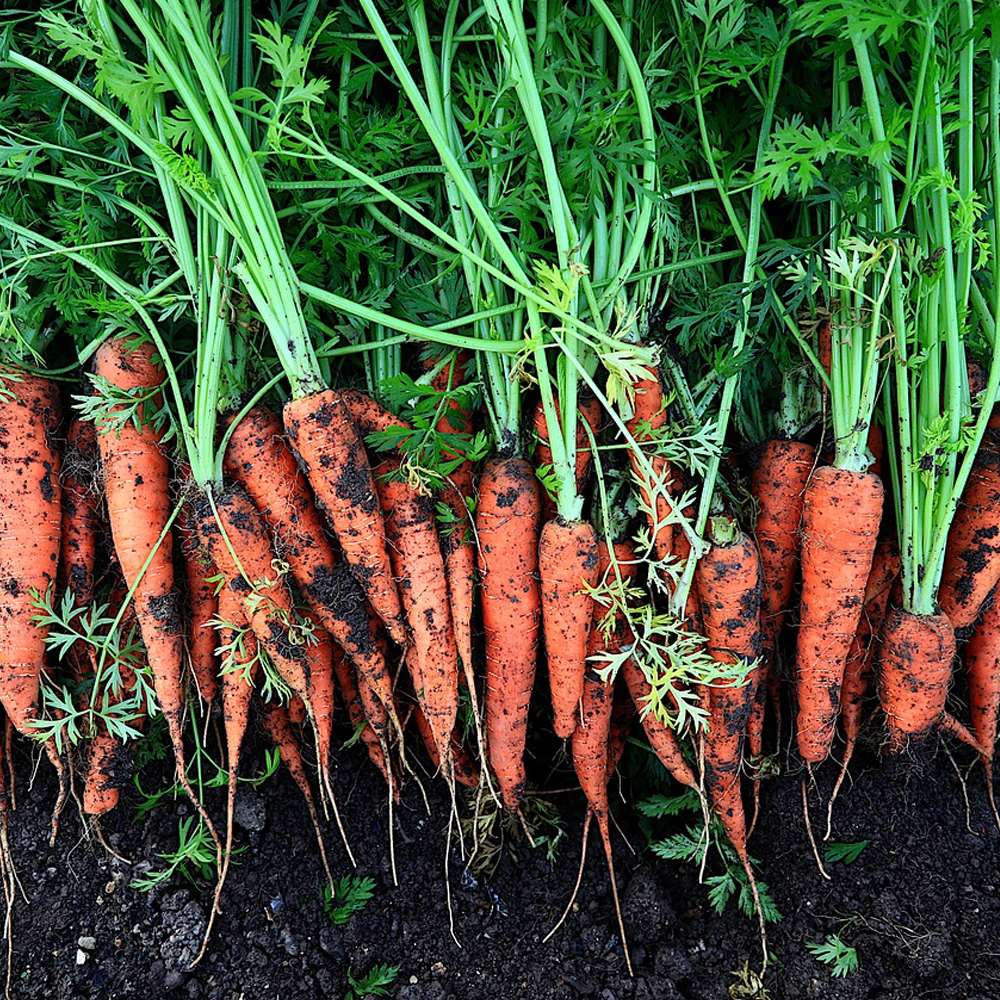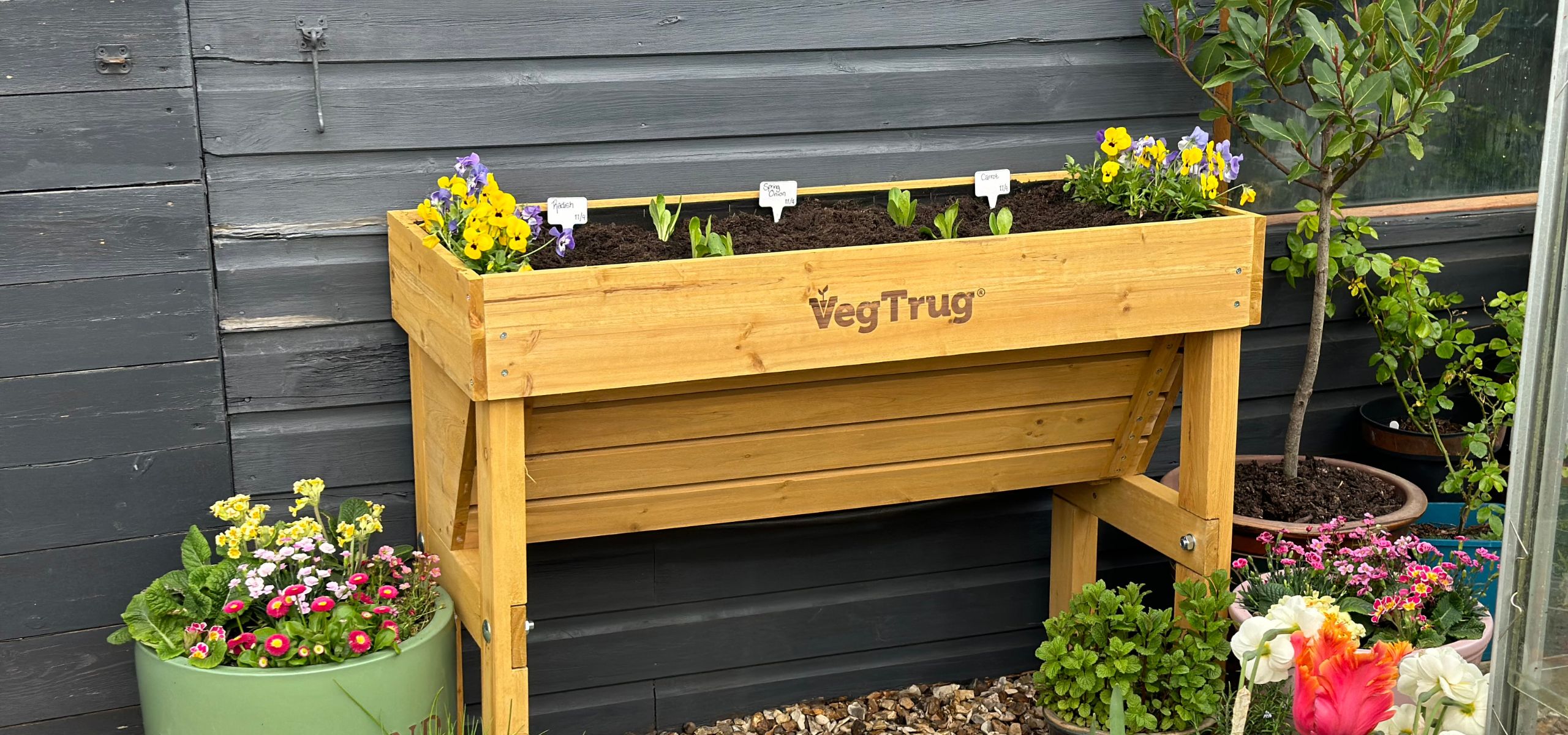Growing Vegetables for Beginners
It’s never too late (or early) to start your green-fingered adventure, and today is as good a day as any to get growing! This guide will give you a bite-sized insight, with all the resources you need to start off in the right direction and enjoy fresh, home-grown flavour.
When & What Should I Plant?
Depending on what you fancy, timings for Sowing and planting can change. As part of our Britain Get Growing campaign, the British Garden Centres team have put together a delightful guide of when to sow or plant the most popular vegetables, which you can find here. It’s always best to plant something you enjoy eating: growing something you’re excited about will be a much more enjoyable journey with a delicious reward at the end.
If you’re struggling for ideas on what to plant, sometimes a simple browse can spark an idea. You can find your favourite vegetable seeds here, but when choosing be sure to keep in mind the size of your planting area as well as the time of year.
A fantastic choice for beginners are carrots and strawberries as these can even flourish in containers and can grow surprisingly fast.
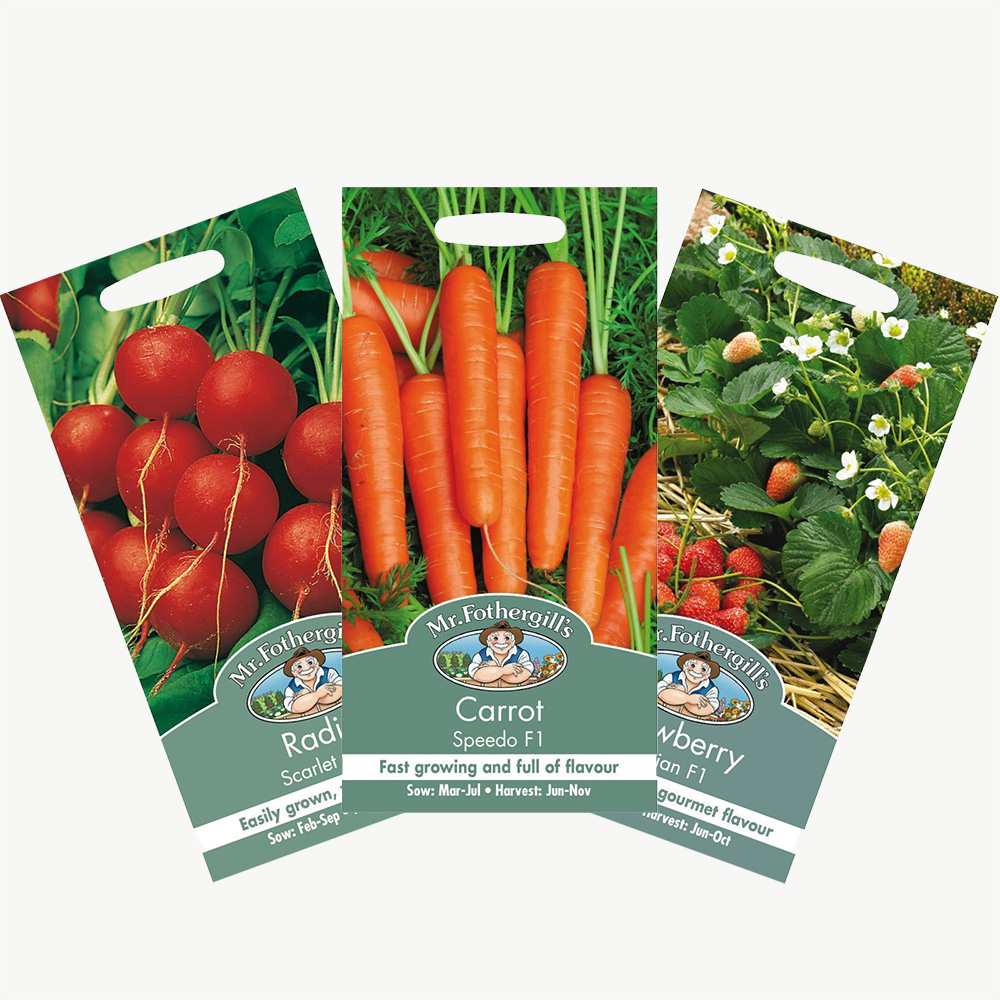
Finding the right Tools for the Job
Don’t be discouraged if you lack a large garden, you can start planting just about anywhere with the right equipment. For a larger planter you can browse our available range of VegTrugs, and for smaller gardens you can browse all sizes of propagators here to get your seeds started off right.
If you predict a frosty cold spell in the near future, either plant close to a wall for natural shelter or be prepared to shield your crops with a horticultural fleece. When it comes to deciding where to plant, most veg love being in full sun but can still thrive in dappled shade.
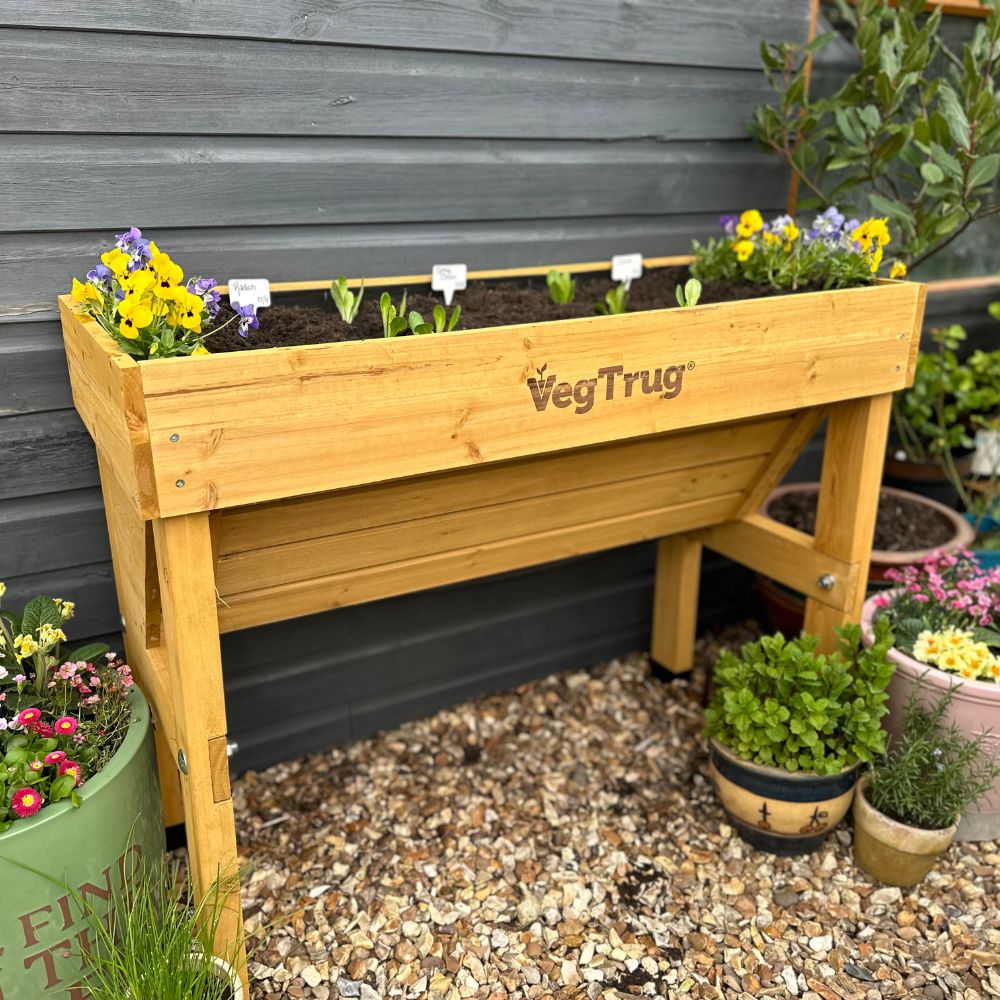
Time to Plant!
Now you’ve got your planters and chosen your favourite seeds, it’s time to set the stage. If you choose to plant in a pre-established border, be sure to remove any weeds and top up with fresh compost. Make sure to flatten your soil and remove any rogue stones until you have a fine compost layer on top. When planting in either a border or raised planter, if you’re starting off with seeds it’s best to clear a little area with your hand and thinly sow your seeds to prevent over-crowding as this can reduce your overall yield.
Not all seeds can be sown outside. If your seeds are starting their journey in a small propagator, make sure to fill each cell with plenty of compost and gently place seeds in each cell. Cover these up with a tad more compost and don’t forget to label them! Try not to overcrowd each cell: if all the roots are competing with each other you won’t have a very abundant yield later on.
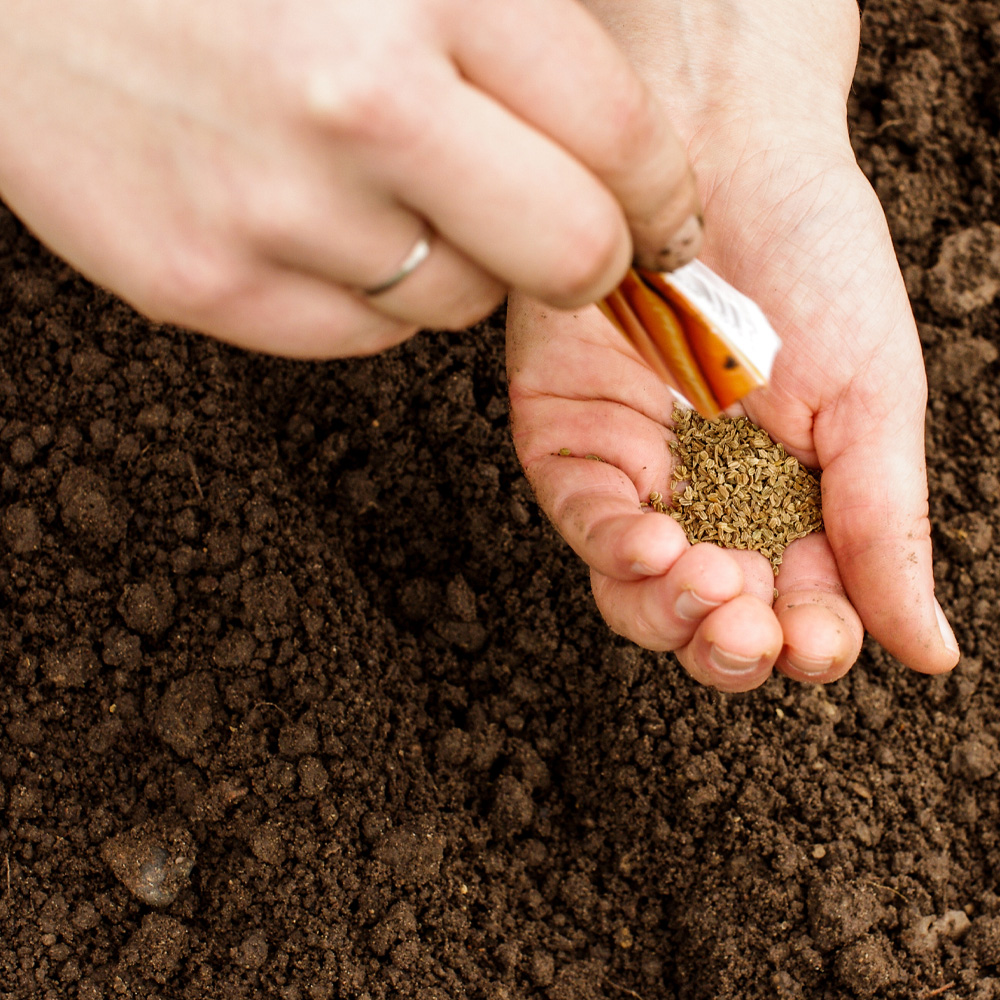
Something’s Eating my Veg!
A vegetable bed like this can be irresistible to pesky slugs and other nuisances, so if you notice your leaves with little nibbles there are plenty of options on how to deal with these invaders. A wide range of organic pest solutions can be found in your local British Garden Centre or Online to keep your vegetables well protected as they flourish.
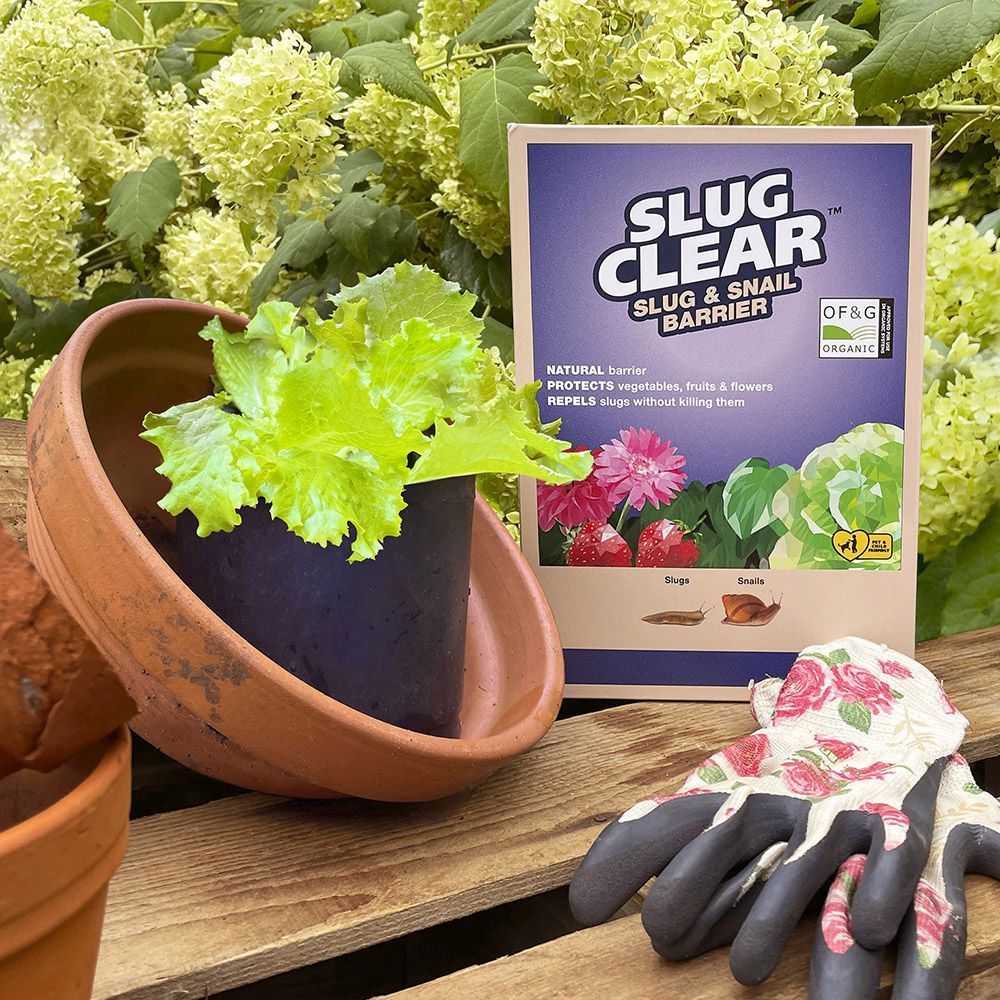
What Now?
Be sure to keep a keen eye on your growing vegetables, and depending on the weather you may only need to water them a few times a week depending on what you planted. A great way to quickly check if they need a top up is to place your finger in the soil next to your crops, being sure not to disturb the roots. If the soil is still moist they’re good to go. If not give them a quick top up! Try not to overwater your gardens as you may stunt your vegetables growth and see a few drooped leaves.
Our very own Grow Your Own Guide can give you some guidance on when to harvest, but you can typically find this information on the back of your seed packets too! Now it’s time to sit back, relax and wait. You should see steady growth over the coming weeks, and soon you can taste the glory of home-grown flavour.
